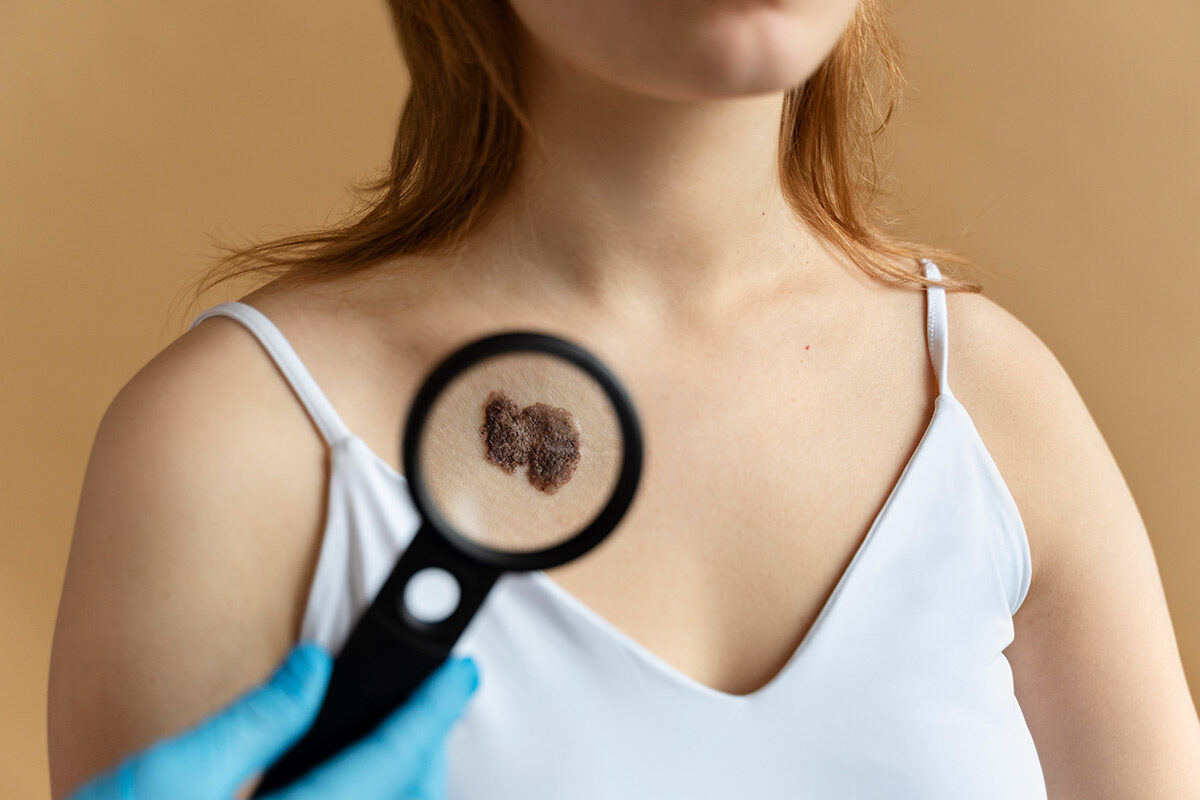Will I have Pain after Surgery?
Most patients do not have severe pain following surgery. There may be mild to moderate discomfort over the first 12 to 24 hours that may occasionally require prescription pain medications. Dr. Pharis will prescribe these as necessary. Most patients find relief from the use of over the counter acetaminophen (Tylenol). Avoid taking all anti-inflammatory medications (ibuprofen, Motrin, Aleve, Nuprin, Orudis, etc.) or aspirin-containing medications since they may cause bleeding or excess swelling and bruising. Again, acetaminophen (Tylenol) is the only pain reliever most patients require after surgery. If you are unable to take acetaminophen (Tylenol), please let our staff know.
Will the Surgery leave a Scar?
Yes. Any form of surgical treatment will leave a scar. However, because Mohs surgery removes as little normal tissue as possible, scarring is minimized. After the cancer is removed, we discuss with you the following options: (1) allowing the wound to heal by itself; (2) repairing the wound with stitches; or (3) reconstructing the wound with a skin graft or flap. This decision is made on an individual basis only after the cancer is completely removed and the final size of the surgical wound is known. The length of the final scar may be greater than you think since most times a surgical scar must be 3 times longer than the width of the wound in order to avoid puckering of the skin at the ends of the incision. Almost all wound closures are performed in the office on the same day the cancer is removed. However, other surgical specialists may be utilized from time to time for their unique skills if a tumor turns out to be much larger than initially anticipated or involves important structures around the eye. We individualize your treatment to achieve the best cosmetic result through the safest methods available.
What will I need to do After Surgery?
To help in achieving the best possible outcome, please follow our wound care instructions carefully. Your wound will require care during the days and weeks following surgery and the type of care will depend on how the wound is managed on the day of surgery. Verbal and detailed written instructions will be provided, and you are always welcome to contact our office should you have any additional questions or problems. (wound care instructions) You should plan to wear a bandage for a minimum of one week and sometimes longer depending on the wound location. You should plan to avoid physical activity such as bending, straining, lifting and exercise during the first 48 hours after surgery. Please arrange your schedule in advance to avoid these activities. Please inform us immediately if you think you may be having a problem after surgery, do not wait for potential problems to worsen.
Will I need to come back?
Although it varies depending on the type of closure performed, we usually ask you to return to the office in 6 -8 weeks after the surgery to check on how the site is healing. We typically use dissolvable stitches to close your wound so the customary one week suture removal appointment is not usually necessary. The importance of the follow-up visits should not be underestimated. Results may be compromised if these appointments are not kept. After ensuring that the site has healed with acceptable results, you will return to your referring physician for routine check-ups.
How can I protect myself from developing additional problems?
After having one skin cancer, statistics show that you have a higher chance of developing a second skin cancer. You should have your skin checked by your referring physician at least once each year, in some cases more often, not only to examine the treated skin cancer, but also to check for new skin cancers. Often the patient is the one who best knows his or her own skin. If you notice a new suspicious area, it is best to bring it to the attention of your physician as soon as possible.
The best protection from skin cancer is to avoid the harmful ultraviolet rays of the sun. Even if you tan easily, the sun can contribute to skin cancer in two ways. First, the sunlight damages the genes that control skin cell growth, and second, sunlight damages the body’s immune system so that early cancers grow unchecked by the normal immune defense system.

